By Ishan Singh
I was 14 when I found out I was no good at singing. Coincidentally, at this same age I decided to try my luck at rapping. It was all a bit out of left field—I was trying to make a kind of music I would’ve been reprimanded for even listening to. Hip-hop is notoriously embedded with negative connotations. Personally, I find it a bit comical when people believe that writing poetry is fine; however, as soon as you put those poems over a beat, you’re thought of as someone who could be materialistic, misogynistic, in a gang, or who abuses illegal substances. Through this commentary, I hope to offer an insight into how hip-hop culture has uplifted me through my teenaged years (I turn 18 by the time this is published), and why it continues to empower and inspire me as a creative individual.
The Ideal
Too far in to go back, too far out to go front
I could just go down, guess that’s still taking the plunge
Those are two of the first lines I ever recorded. My voice was squeaky and I had no sense of rhythm. Above all, my flair for the dramatic was more than apparent, given that I was describing how I was too far in when I had rapped for a whole three weeks up until that point. But talking in extremes wasn’t deliberate and I may’ve just been emulating my idols. After all, Eminem called himself “married to the game”, while 50 Cent, when asked how he found the time to work so much, claimed he doesn’t sleep.
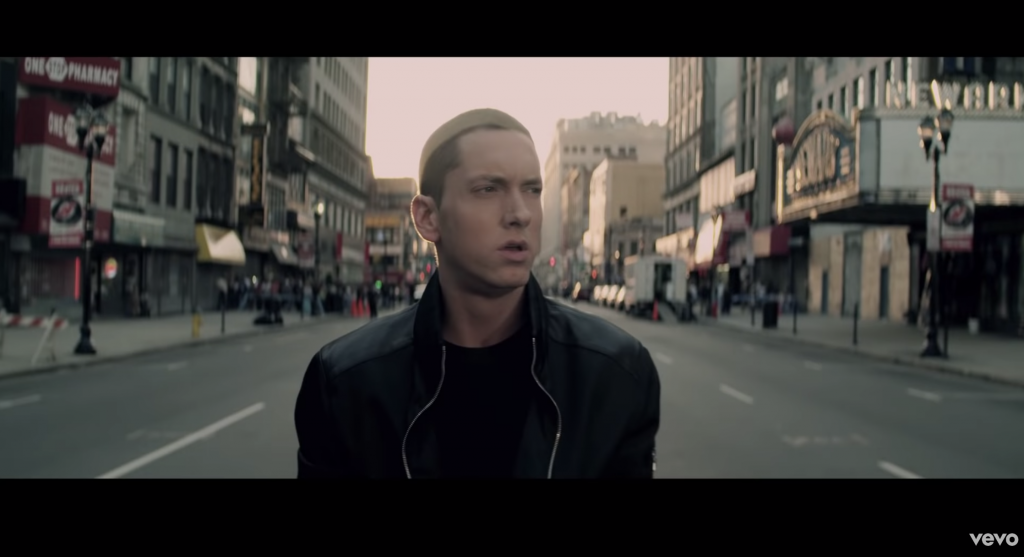
Screengrab from Eminem’s “Not Afraid” music video
At the time, I was very much convinced that my lack of progress as a rapper within the three-week time frame was a failure of immeasurable magnitude. The fact that I wrote and rapped about this alleged failure actually helped me get over it and move forward. The solution to the problem lay in the problem itself. To me, hip-hop is a form of introspection. It’s a way to vent and release emotions that one might feel uncomfortable expressing during the course of everyday life. So, if you were to take a step back and look at this entire community of people putting their thoughts and feelings into instrumentals, ideally, you wouldn’t see an entity that’s a purveyor of negative ideals; rather, a culture that represents the collective views of society.
The Distorted Ideal
Negativity sells. This is why every time you turn on the news, you lose a little bit more of your faith in humanity. In reality, the world may not be turning into a more terrible place—it’s likely even changing for the better—but unfortunately, that isn’t a newsworthy message. As a case in point, consider which of these articles you’d click to read, based on their headlines alone:
-
“Local Hero Helps Old Lady Cross the Street”
-
“Uncouth Civilian Refuses to Help Old Lady Cross The Street”
We take the former for granted and thus, aren’t interested in reading about it. The latter, on the other hand, incites a reaction. It stirs up the reader’s desire to comment on the wrongdoings of the person involved, and then feel better in the knowledge that they'd “never do something like that”. 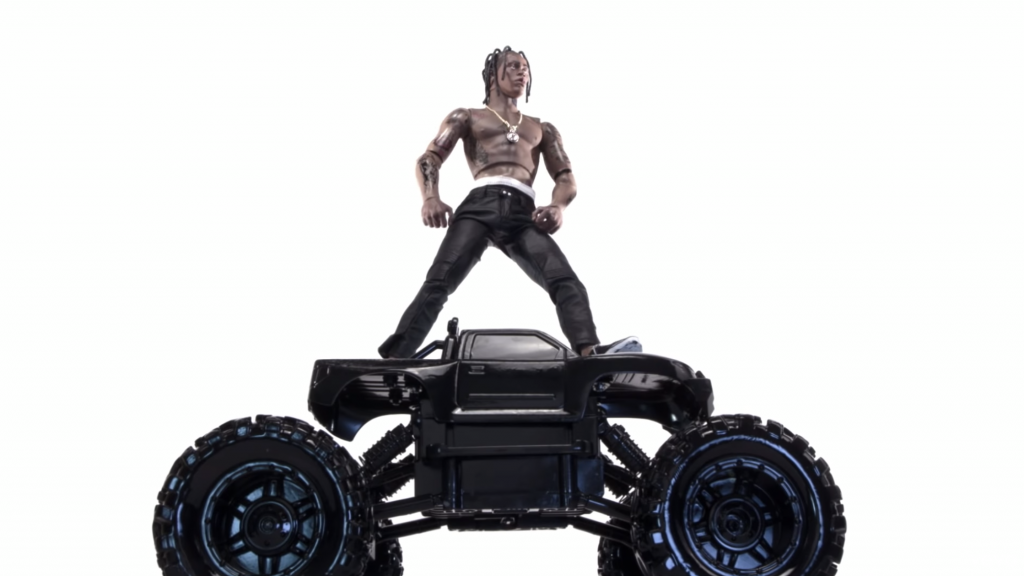
Screengrab from Travis Scott’s “90210” music video
Hip-hop is an easy target for the media to paint as evil. That’s because it often involves emotions conveyed in a raw and blunt manner, in contrast to other styles of music. For instance, hearing the lyrics of “90210” by Travis Scott (“Whole crew, I swear they counting on me / Gold chains, gold rings, I got an island on me”), people are quick to paint a picture that celebrates materialism and opulence. But this subject is not always treated in the same manner by all artists. On the other spectrum, we have J Cole’s “Chaining Day”, where he describes his guilt for spending excessively on jewellery: “My last piece I swear / My guilt as heavy as the piece I wear”.
Screengrab from J Cole’s Born Sinner album on Spotify
However, no matter how strongly themes of drug abuse, gang violence, misogyny and materialism feature in hip-hop, it is undeniable that these issues exist. Hip-hop culture—and its commentary on these uncomfortable subjects—are not to blame for all the ills in the world.
Lessons
Growing up, I stopped viewing superheroes as role models when I realised the expectations were too high to live up to. These days, people who inspire me aren’t flawless beings with no skeletons in their closets, or those who only pretend as much. Instead, I admire individuals who speak openly about their personal experiences involving heartbreak, addiction, prosecution, depression, segregation … the list goes on. I think it’s brave when you don’t only present a positive, put-together version of yourself to the public, but acknowledge that you are vulnerable and struggling, just like anybody else. Kid Cudi released a song called Pursuit of Happiness in 2009. The first four lines go like this:
Crush a bit, little bit, roll it up, take a hit
Feelin’ lit, feelin’ right, 2 AM, summer night,
I don’t care, hand on the wheel, driving drunk I’m doing my thing
Rollin’ the midwest side and out/ Living my life, getting out dreams
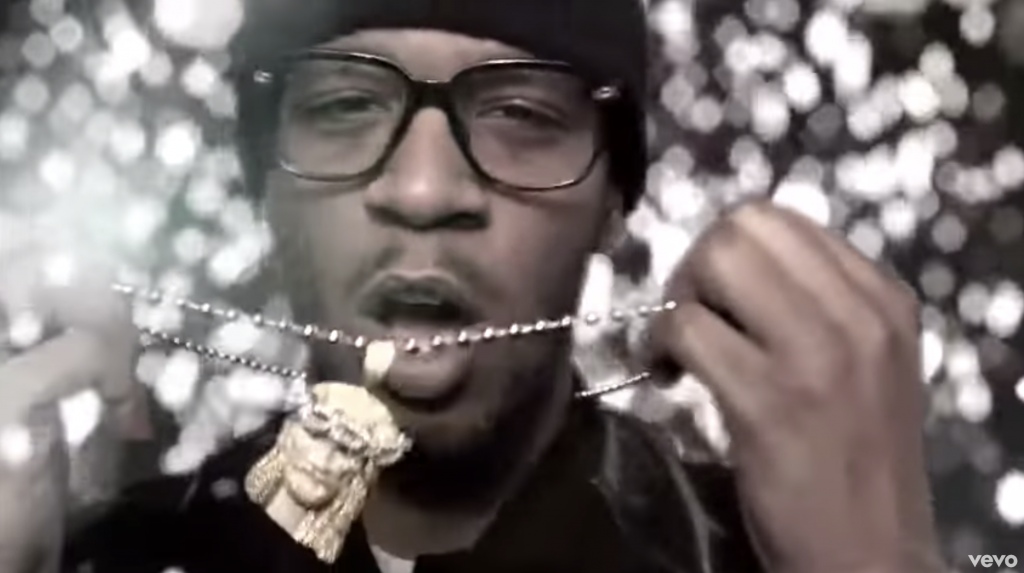
Screengrab from Kid Cudi’s “Pursuit of Happiness” music video
Pursuit of Happiness is a common party track and reads somewhat like a “druggie anthem”, but listen more closely and you’ll also see that Cudi is discussing the harsh reality behind a lifestyle of hard partying and drugs. The lyrics in this case provide a context, not a message. It’s a story of someone who, at some point, got lost while searching for happiness in substances, and who is now trying to warn others not to go down that same road. If nothing else, the visceral lyrics make this song an effective cautionary tale. Such as when he says:
Tell me what you know about them night terrors every night
5 AM, cold sweats, waking up to the sky?
Cudi even has an outro with him reflecting about the night in question: “Oh my God. Why’d I drink so much and smoke so much?”
It’s What You Make of It
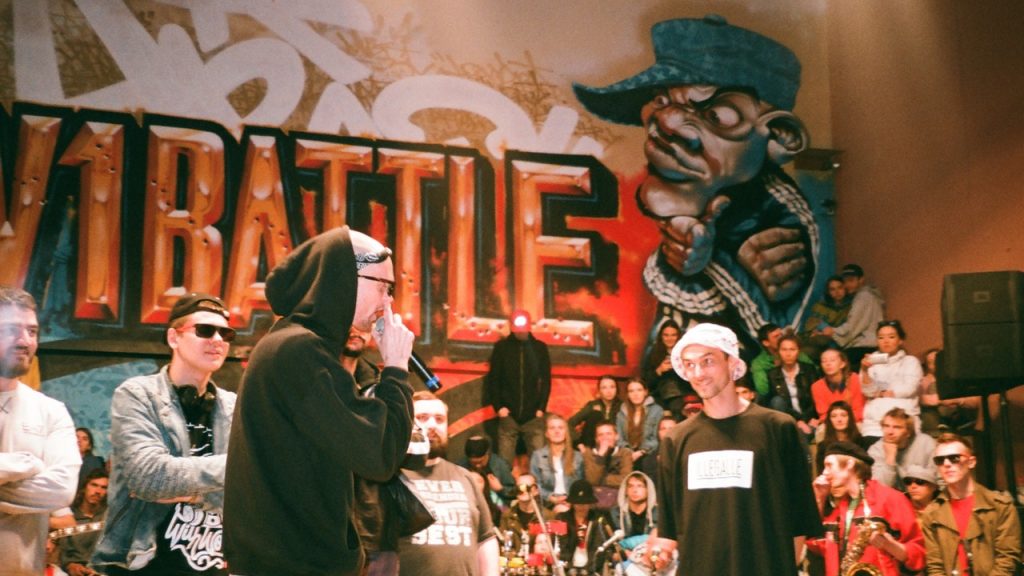
Photo by Александр Неплохов via Pexels
Finally, I believe hip-hop music doesn’t represent a culture that’s inherently good or bad. For the most part, artists are finding creative means to vocalise issues spanning the range of human experiences, whatever they may be. It is therefore the listener’s job to listen and be the judge.
Editor's Note: Ishan writes and performs his own rap music. Check out his original creations at his YouTube channel
 |
Ishan Singh is a first-year undergraduate at the Singapore Management University’s Lee Kong Chian School of Business, and an Editorial Assistant of Social Space Magazine. He spends any spare time he has rapping or producing music, and hopes to pursue a career in music. Passionate about the arts and writing, Ishan hopes to write articles and make videos that shed light on the importance of the arts in our communities. He can be reached at ishan.singh.2018@business.smu.edu.sg |




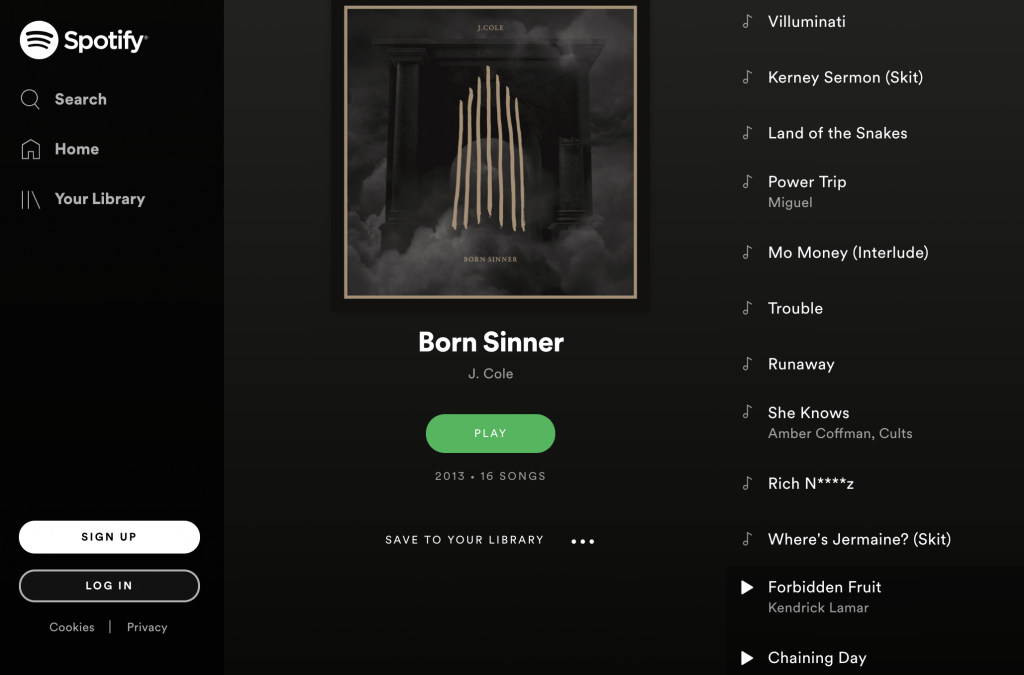




Comments